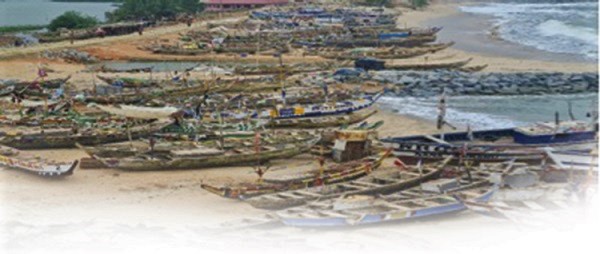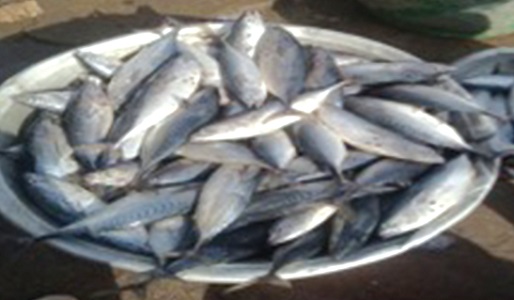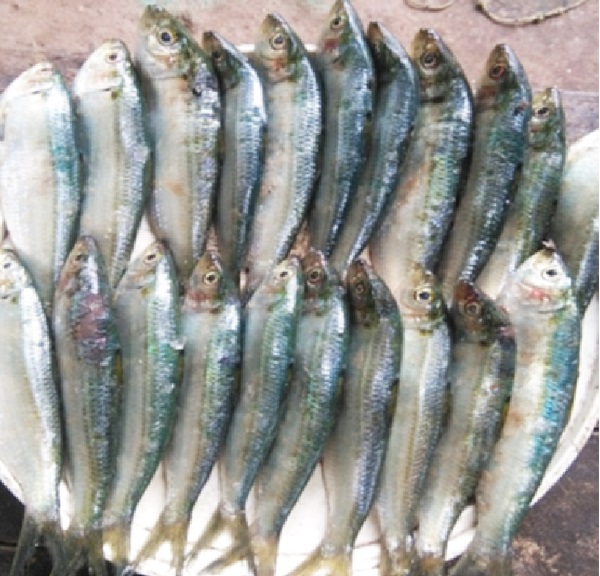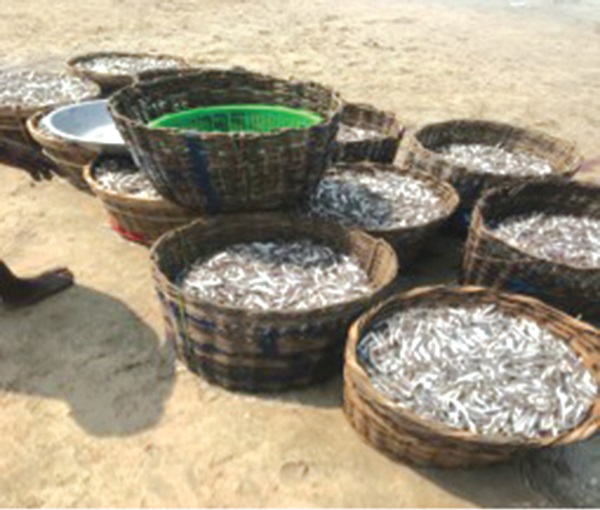
Fisheries sector in retrospect
The Fisheries and Aquaculture sector plays a crucial role in job creation, food and nutritional security, the generation of income and poverty reduction in Ghana.
Fish remains one of the most-traded food commodities in the country, contributing 60 per cent of the annual protein intake of Ghanaians, and in 2020 the total annual fish requirement was estimated at 1,242,917.60 metric tonnes.
Advertisement
In 2020, the total annual fish production was estimated at about 471,794.82 metric tonnes and fish self-sufficiency was 50.52 per cent, while the per capita consumption in the same year was 20.21 kg (ECOWAS avg = 13kg), with fish imports of about 193,226.87metric tonnes valued at US$51,981,448.73 to augment fish deficit, and the contribution to GDP estimated at about 0.94 percent.
Landing Beach
The fisheries sector employs about 10 per cent of the population. There are three main areas in the fisheries sector in the country, namely Marine Capture Fisheries, Culture-Inland Fisheries, and Aquaculture.
The Marine Capture Fisheries includes marine, oceans, Brackish – lagoons, riverine — the Oti, Black and White Voltas, and lacustrine, and Lakes Volta and Bosomtwi. Culture/inland fisheries include, inland reservoirs, dams and dugouts.
Aquaculture includes ponds, rivers and lakes — cages are the areas of farming.
In 2020, fish production from the sector was as follows: Marine 69 per cent, Culture-Inland Fisheries 17 per cent, and Aquaculture 14 per cent.

The Marine sector has about 14,428 artisanal canoes and the target species are sardinellas, anchovies and mackerels. Inshore semi industrial sector has about 400 vessels with the targeted species being Sprideas and Croakers (Red and Cassava Fish), while the Industrial Trawlers have about 76 Tuna bait boats and 33 Purse Seiner, which target species, such as, the Yellow Fin and Skip Jack tuna.

Management
Management of the Fisheries sector is confronted with several challenges, key among them being Illegal, Unreported and Unregulated (IUU) fishing; climate change and plastic pollution.

Ghana had her first EU yellow card in 2013 and the following were the corrective measures put in place to address those challenges: They include,
•the Promulgation of the Fisheries (Amendment) Act, 2014, Act 880
•the Promulgation of the Fisheries (Amendment) Regulations, 2015 (L.I. 2217)
•the Ratification of the Port State Measures Agreement (PSMA) in 2016
•the Adoption and Implementation of National Plan of Action to Combat IUU fishing in 2015
•the Development of National Marine Fisheries Management Plan (MFMP) 2015-2019
•the Implementation of Vessel Monitoring System (VMS) and Automatic Identification System (AIS) in 2014
•the Improvement of Catch Documentation Scheme to ensure traceability of all products for export
IUU complaint actions
Ghana has again been listed as a non-compliant state to IUU by the European Union. To address the issue, the Government has taken proactive measures to sanitise the sector through regulatory reforms and improvement in the governance system. Specific actions taken include:
•the Drafting of a new Fisheries Act to replace the existing Act
•the revision of existing National Fisheries and Aquaculture Policy to incorporate emerging issues in the fisheries sector
•the adoption and Implementation of National Plan of Action to combat IUU fishing (2021-2025)
•the development of a new Marine Fisheries Management Plan (2022-2026)
•the strengthening of Vessel Monitoring System (VMS) and Automatic Identification System (AIS)
•the strengthening of the Observer programme
•the undertaking of Sea Patrols in collaboration with Ghana Navy
•the undertaking of Regular Port and Beach Inspection
•the intense Sensitisation of Stakeholders on the negative impact of IUU fishing on the national economy
Ghana in addition is acquiring four additional patrol boats and a research vessel to complement the Monitoring Control and Surveillance (MCS) operations of the Ghana Navy and Marine Police to fight fisheries infractions.
Directive
The marine fisheries sub-sector, which accounts for 70 per cent of domestic fish production is increasingly showing signs of full exploitation or overexploitation due to factors, such as, IUU fishing, excess fishing capacity high volumes of juvenile fish catch.

As part of measures to address the situation, the ministry, in collaboration with Ghana Industrial Trawlers Association (GITA), conducted a Gear Audit for trawl fleet in 2019, the report of which was shared with the association.
Pursuant to section 76 (3) of the Fisheries Act 2002 (Act 625) as amended by Act 880 of 2014.
The following Ministerial Directives were issued for compliance effective September 1, 2022.
•Two-panel trawls with 60m stretched circumference at the fishing circle should be used.
•The vertical opening of the trawl nets to be used should not exceed ten (10) metres with corresponding wings and panels in conformity with clear and general laid down rules in the construction of trawl gears;
•Braided polyethene twines should not be used in the codend of 60mm as they prevent the escape of juveniles from the net; (i.e. codend should be made of one type of material and single-twined);
•The overall length of the codend should not exceed 10m;
•Any device attached to the trawl or any form of construction that reduces the selectivity of the gear should be avoided.
Collaboration
Ghana has been collaborating with Members of the Fisheries Committee for the West Central Gulf of Guinea (FCWC) to fight IUU fishing in the sub-region. Some of the Sub-Regional measures include:
•the signing to participate in the FCWC Joint Patrol Mission
•the signing to participate in the FCWC Regional Observer Mission
•the collaborating with the FCWC Regional AIS and VMS.
In the midst of the emerging issues confronting the fisheries sector, management is confident that reforms being implemented would strengthen the sector for it to contribute optimally to national development.
The writer is the Public Relations Officer, Ministry of Fisheries and Aquaculture Development (MOFAD). E-mail: [email protected]



